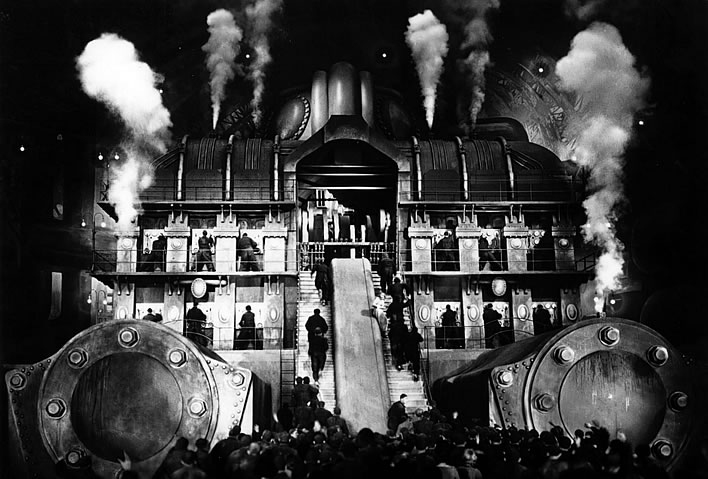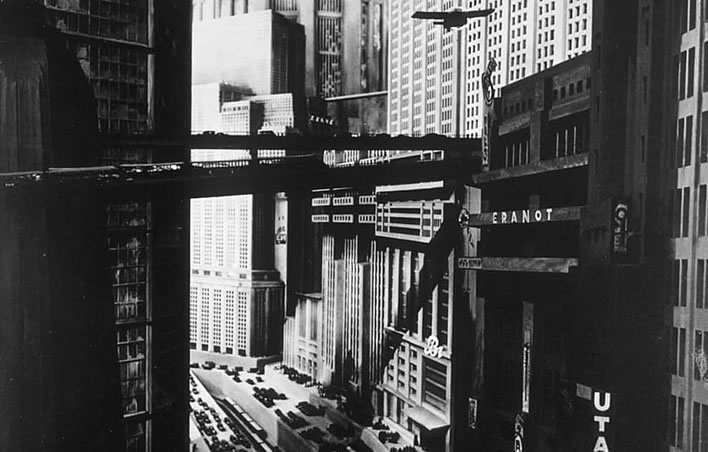Scrapbook for September
Richard Law, UTC 2025-09-01 02:01
28.09.2025 – More direct democracy
This Sunday morning the Swiss have been off voting in their autumn referendum.
At the national level there was a question about property taxation, which overturned that Swiss oddity, the Eigenmietwert tax ('own rental value') with a vote of approximately 58 percent. Only the insane vote for taxes, of course, so the result is no surprise that this traditional tax finally got the chop. The surprise will come when Swiss citizens find out where the missing tax income will come from.
There was a question in lefty Canton Zurich the answer to which its inhabitants got right for once: whether the deadline for the deranged rush to NetZero should be brought forward in the Canton. The solid answer NO (59.6 percent) is cheering until we realise that 40.4 percent of the lefty crackpots of Zurich thought it should. They are hiding in plain sight amongst you.
But most importantly, we had another demonstration of the validity of the FoS First Law of Referendums: The more controversial an issue is, the more it is likely to produce a near 50-50 result in a referendum and thus decide nothing satisfactorily. Referendums are useless for taking controversial political decisions. If on any issue the politicians don't know what they want, neither do the people.

Image: ©Ric Tom
In this case, the question was about the introduction of an ID-app for smartphones. It has surprised the experts that the large number of people who still have a simmering resentment at what the state did to them during the COVID nonsense rose up and voted NO. Which just shows how out of touch the experts are.
However, the final result is that the smartphone ID system has been accepted. 50.4 percent (1'384'549) voted YES, 49.6 percent (1'363'283) voted NO, 49.6 percent of the electorate didn't bother to vote. So all the simmering resentment was of no avail and 10'633 voters decided it. The minions and myrmidons of the administrative state can breathe easier – one more step, one more brick in the wall.
British people reading this will think: 'What a surprising coincidence – we are discussing ID apps for smartphones at this moment in Britain'.
The surprise is that you think this is a coincidence. Electronic IDs are the current must-have tool of the administrative state (a.k.a Eurasia) that stretches across the EU, across the EEA/EFTA countries, across Switzerland and yes, across 'Brexit' Britain (a.k.a Airstrip One, which used to be in Oceania). It is certain that whatever systems the nations of this pan-national administrative state choose, they will all have integrated data access/exchange. They may look different, but underneath the hood they will be the same.
18.09.2025 – The new weights and measures, part II
In our June scrapbook we noted the arrival of a new unit of weight, the elephant:
…the world’s heaviest conventional bombs – each one weighing as much as three adult African elephants…
The trend to elephant weights continues – now we have the sub-unit, the baby elephant;
A couple have grown a giant pumpkin that is heavier than three baby elephants.
Justin Griffiths and Kay Walker, from Ashtead in Surrey, grew the pumpkin on their allotment plot at the Leatherhead Poors Allotments.
The Daily Telegraph, 14 September 2025.


Since this is The Telegraph, we simpleton readers get a bit of explanation, just in case we have never tried to lift a baby elephant (or a giant pumpkin, for that matter):
They have estimated that it weighs more than 390kg (860lbs). Baby elephants, by contrast, weigh between 90kg (200lbs) and 136kg (300lb).
We learn something every day. The only remaining question is: Why is it always three?
04.09.2025 – Switzerland — direct democracy strikes again
Now and again politically frustrated right-wingers in Germany indulge in fantasies about having 'direct democracy', that is referendums just like they have in Switzerland. The German people could then take control over their crackpot coalition system – and put an end to immigration, for example. Well… perhaps. The correct response to this fantasy is: 'Be careful what you wish for'.
We presented an instance (below) where the Swiss government is now in a tangle in its energy dealings with the EU because of a referendum result.
Yet another case of Swiss direct democracy gone wrong is bubbling away at the moment: the purchase of 36 F-35A fighter jets from Lockheed Martin in the USA. Just like the energy debacle, this involves much wishful thinking on the part of the Swiss government.
We recently looked at the very strange location of Switzerland, embedded at the centre of a ring of much larger European neighbours, and found it difficult to come up with a war scenario in which plucky little Switzerland had to defend itself against an aggressor. Its neutrality demands military isolation and autonomy. Switzerland can't fight an aggressor on another country's territory, but once an aggressor has reached a Swiss border, it's too late, Switzerland is toast.
Starting from that point and ignoring all the absurdities, we might consider what weapons Switzerland needs in order to be able to put up a credible resistance against any aggressor at its borders. Whatever that mix of weapons might be, it cannot afford them. Its neutrality forces it to stand alone and shun all alliances. The burden cannot be shared with allies. Whatever strategic concepts are spooking around the heads of the Swiss military establishment, all attempts at making the country defendable will be Alibi-Übungen, 'alibi exercises'.
Among the most expensive of these weapons are fighter aircraft. Switzerland's existing fleet of 30 F/A-18 Hornets wouldn't last two minutes on a modern battlefield. They entered operational service in the USA more than forty years ago and despite upgrades were already out of date twenty years ago. Finland, a comparable country using the F/A-18, began retiring them last year. Switzerland had a target of 2030 for replacing its Hornets. After going back and forth for many years choosing their replacements, the Swiss government finally decided on the American F-35.
For a country based on a doctrine of armed neutrality, flying American fighters brings with it questions no one wants to answer: the USA is the only source of spares and maintenance materials and almost certainly has a 'kill-switch' that will interdict their use. However, since no one can think of a scenario in which they will be used in earnest, we can safely glide past that problem. But for a purchase of this magnitude a referendum was unavoidable.
Your author is no fan of the Expert Class, or even the Ruling Class in general, but why a country should delegate a strategically existential decision to the whims of the few million know-nothings who can be bothered to vote in what is effectively a coin-tossing exercise with an unpredictable outcome – well that is a mystery.
Unfortunately, the Swiss department of defence had to specify a cost for the aircraft, so on the basis of the prices quoted by the USA it set a figure of a little over 6 billion for 36 aircraft, an amount which unusually became part of the referendum proposal that was put to the Swiss electorate in 2020.
Unfortunately – very unfortunately, as it turns out – the Swiss people accepted the F-35 purchase at the proposed price, although by the narrowest of margins (50.1 percent, by approx. 8'000 votes). But, with referendums, just a one vote difference is enough.
Some dreamers in the Swiss government, right up to the top people, the Defence Minister herself, believed they had negotiated a 'fixed price' contract with the Americans. Anyone with a bit of business experience knows that there is no such thing as a fixed price contract. Only a supplier yearning for bankruptcy would do a deal on the basis of a fixed price, especially one that runs over the course of a decade or so. Only a daydreaming customer would think they could agree to a price, then go off and have a little think about it all and fiddle about for three or four years and then come back to an unchanged price.
It came as it had to. The deal was signed in 2022. Here we are in 2025. In the meantime the Russia-Ukraine war flared up and as a result European nations are scratching around for weaponry. The world doesn't seem a particularly safe place at the moment, so fighter aircraft such as the class leader the F-35 are in demand. Such objects of desire become more expensive, naturally.
In the meantime too, after years of low interest rates, inflation has come back to trouble us along with exchange rate fluctuations. The Swiss have already paid 350 million CHF (plus 300 million CHF more this year) to the USA and Lockheed Martin. At the beginning of June this year the Americans said 'Fixed price. What fixed price?'. The aircraft deal will now cost up to 1.3 billion more.
High-level lawyers are scooping up substantial fees giving contradictory opinions; Swiss ministers are like hens clucking frantically round the farmyard; the defence minister responsible for the farce, Viola Amherd, ironically a small-town lawyer by profession, resigned in March, took her half-a-million index-linked pension (no fixed price nonsense there!) and left the steaming mess to her successor. Eyebrows were raised when it came to light that no court of abitration had been specified in the contracts, so there is no judicial instance that can litigate the problem.
Just as an aside, Amherd and her successor Martin Pfister are both members of the party Die Mitte, a party whose programme and whose membership is as vacuously meaningless as the name it chose for itself a few years ago, 'The Middle'.
A 'normal' government would have hidden the mess, pretended that all was well and made up the difference by cuts in something or other. The Swiss government is far removed from being a 'normal' government.
The Swiss people approved a project costing 6.1 billion CHF. As a result, the government is legally unable to spend more. If the government wants the same number of jets, a new referendum is required to approve the extra money. If the government instead chooses to muddle along with fewer aircraft for the old price, what does that say about the defence concept behind the original purchase? How can it still apply? Given that in all realistic conditions, at any one time a proportion of the aircraft will be in the workshop being repaired or maintained, the country's air defence will rest on the few of the few. Perhaps another referendum will be needed. For obvious reasons, the Swiss government wants to avoid this at all costs.
Having handed over nearly a billion CHF to Lockheed Martin already, if the Swiss cancel the contract (an action which might very well also need another referendum), they will have to admit that that billion has gone down the pan and Switzerland is now back to where it was in 2020 with no modern fighter aircraft at all – Ausser Spesen nichts gewesen 'apart from expenses, nothing' as the saying goes. Thus the long, embarrassing history of Switzerland trying to buy fighter aircraft has another chapter; the socialists and greens (who on principle begrudge all military spending) are venting their outrage at the latest procurement disaster; the Defence Department is gritting its teeth and saying as little as possible, ministers and their civil servants are passing the buck and being wise after the fact.
It gets worse: Having fiddled about for more than ten years choosing a fighter aircraft, The Russia-Ukraine war has seemingly made drones the must-have kit for today's warrior class. Switzerland has messed around with these, too. The result so far is known as the 'drone-farce', but I shall spare you that steaming pile of ordure for now.
So all you Germans thinking that direct democracy will solve your democratic deficit, forget it. Your messy coalition governments will remain, attempting to run a country that is hopelessly fragmented ideologically and culturally. No member of the political class of any persuasion will vote to introduce referendums. The only solution is a strong leader who knows what he or she wants – er... let's leave it at that.
01.09.2025 – Poor little Switzerland – EU plays hardball
Another Swiss environmental fantasy bites the dust.
As this website has noted on numerous occasions, plucky little Switzerland can expect no mercy from the EU. The EU giveth nothing, it only taketh away. Switzerland is a little blip of a country (pop. 9 million) totally surrounded by the EU (pop. 450 million).
The latest punishment beating from Brussels comes in the 'Electricity Agreement Switzerland – EU', the details of which are only now becoming widely known. This Agreement is important to sustain the green fever-dream of the Swiss by providing regulated access to the electricity production in the EU over the various connectors when the Swiss home production fails to meet demand – as it frequently will.
Only last year, in a Swiss referendum on the proposed 'Federal Electricity Supply Act', 69 percent of voters in an act of brainless self-harm agreed to an insanely green package of measures. Amongst these was a bung for house owners: stick some solar panels on your house and the energy companies will pay you a fixed price for your electricity that goes into the grid of 0.06 CHF per kWh, irrespective of the current market price.
It only takes a moment's thought to see this measure as lunacy. In the year since that referendum the houses in my village have been plastered with solar panels. Even houses which already have solar panels have been given more. Gone are the terracotta roof tiles or stone slates of old, plastic rectangles are the new look; even rustic balconies and walls have been encased.

The way it used to be: Heidi running home (1997), as portrayed by Tomi Ungerer (1931-2019). Find the solar panels.
On sunny summer days, around noon, when you don't need the electricity yourself, the state pays you good money for whatever you can produce (which it doesn't really need either). Added to the grants and subsidies for the installation, that is money for nothing and kilowatt-hours for free.
Without the fixed price guarantee, solar panels on private houses would be a loss-making project. In summer around noon the market price would be close to zero. Which is exactly what the EU demands as part of the Electricity Agreement, an end to fixed pricing. Which puts me, as a fan of free-markets, into the painful position of having to agree with the EU on something.
Now that the EU has got plucky little Switzerland down on the ground, along comes an extra kicking. It demands the removal of the designation 'inland' for electricity generated in Switerland. Simple people like me would think 'so what? What's in a name?'
But the use of the term 'inland' would have allowed the electricity distributors to offer an option for patriotic consumers to choose supply contracts which specified only electricity produced in Switzerland. There are a surprising number of well-heeled Swiss people who will choose the 'good' option, however much more expensive it is. Such market rigging in the pursuit of some 'noble lie' has been the norm in Switzerland, for so long, in fact, that Swiss politicians no longer blush when they do it.
Take away the 'inland' option and the distributors are free to go shopping for electricity wherever they want – to the benefit of consumers, particularly those who are not house owners participating in the scam. Switzerland's puny solar installations cannot compete with the panels soaking up the sun around the Mediterranean, the French nuclear power stations, the Germans burning Russian gas and Braunkohle (lignite).
In effect, the EU has exposed the lefty green market manipulation for what it is and will, quite rightly, have none of it. The only trouble for the Swiss government is that all this manipulation has been undertaken to fulfill the results of a referendum. The Swiss government is now constitutionally obliged to obey the wishes of the citizens as expressed in that vote. Something's got to give.



The Swiss Energiestadt as foreseen by Fritz Lang in Metropolis (1927). Heidi will be in there somewhere.
0 Comments UTC Loaded:
Input rules for comments: No HTML, no images. Comments can be nested to a depth of eight. Surround a long quotation with curly braces: {blockquote}. Well-formed URLs will be rendered as links automatically. Do not click on links unless you are confident that they are safe. You have been warned!